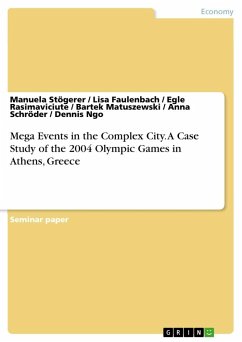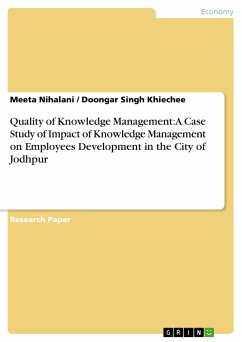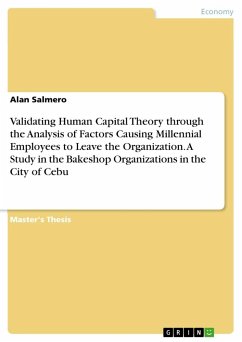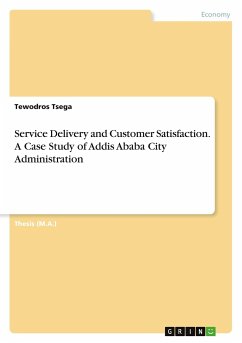Seminar paper from the year 2014 in the subject Business economics - Business Management, Corporate Governance, grade: 2, Aalborg University, language: English, abstract: Mega-Events, as the Olympic Games, are generators of urban change and associated with positive impact for the hosting city at first sight. At the same time real-life examples demonstrate that these hallmark events leave a physical imprint and commonly a challenging long lasting legacy to deal with. The project "Mega-Events in the complex city" identifies the challenges that need to be considered, when making changes in the built environment while hosting a Mega-Event. The aim is to provide recommendations for further hosting cities in order to minimize the negative consequences a Mega-Event may entail. The project takes its starting point in examining the impact that a Mega-Event has on the city. The city as a complex system already bears a number of existing conflicts. Placing a Mega-Event into this complex system creates additional challenges with contradicting issues between short term vs. long term planning, large-scaled demands vs. local needs, old vs. new built environment as well as expectations vs. reality. Those challenges are approached in the case study of Athens Olympics 2004 to examine the burdens a city has to face after hosting a Mega-Event. Further, best practice examples of the four cities London, Barcelona, Vancouver and Los Angeles, who already hosted the Olympics in the past are presented in order to show an alternative way of dealing with the occurring challenges. Through investigating positive and negative past cases of Olympics, recommendations for further hosting cities are developed. The recommendations comprise that Mega-Events should be used as driving force for the overall cities strategy and evince long term planning. Thus, urban renewal can be affected positively and the after use of related large scale facilities can be ensured, which reduces the financial burden for the hosting city. Furthermore, the social shadow a Mega-Event may entail can be countered by integrating the needs of the local community. Considering these recommendations should help to lead to a positive reputation of the Mega-Event and enables the cities to fulfil their hopes and expectations related to the Mega-Event.
Hinweis: Dieser Artikel kann nur an eine deutsche Lieferadresse ausgeliefert werden.
Hinweis: Dieser Artikel kann nur an eine deutsche Lieferadresse ausgeliefert werden.








